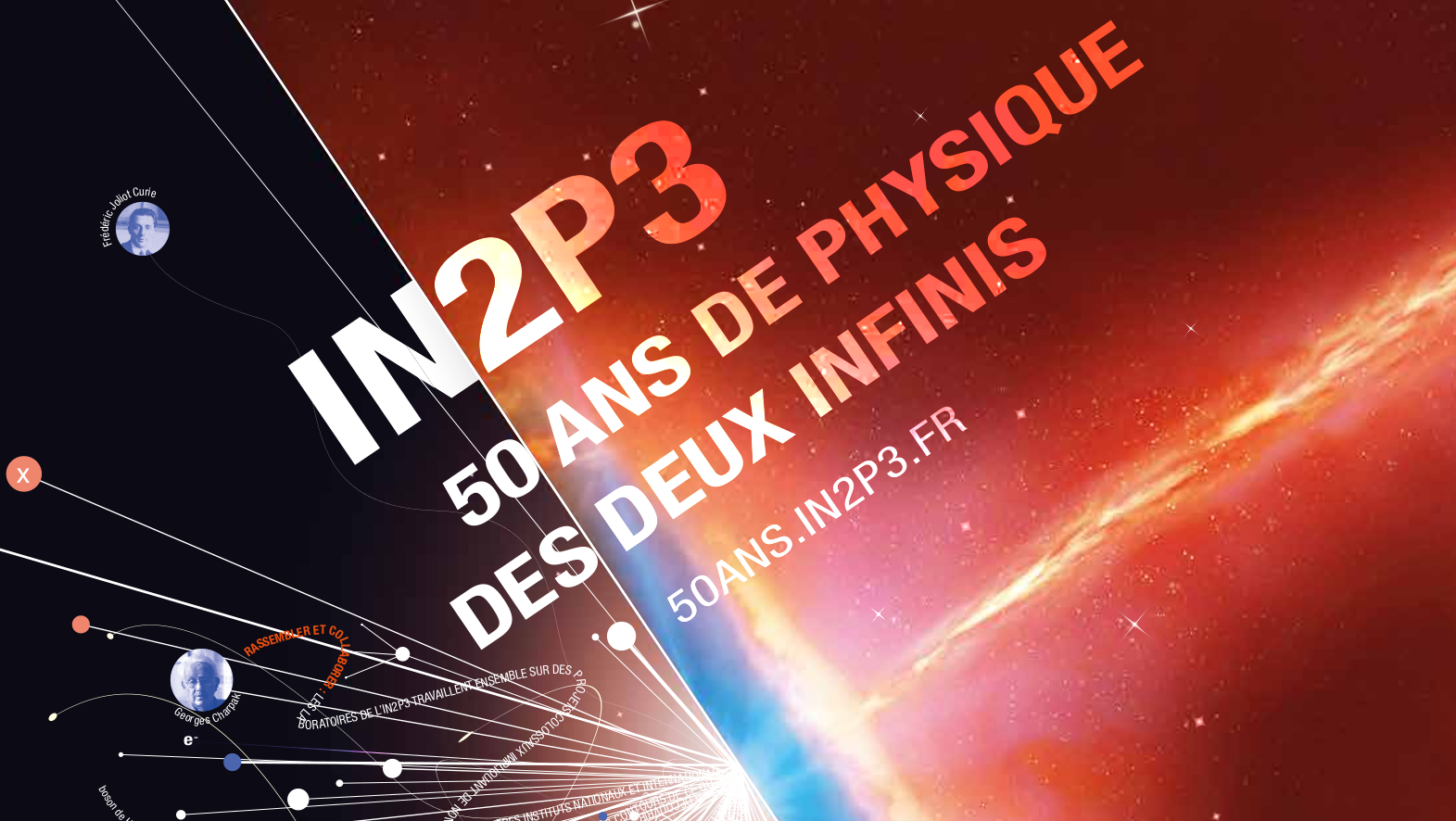50 years ago, on the 14th of April 1971 the “Institut national de physique nucléaire et de physique des particules” (IN2P3) of CNRS was founded, with the goal of coordinating and developing research in these domains.
From the 14th of April to October 2021 IN2P3 will celebrate this anniversary with a series of events in their laboratories all around France and online. The celebrations will be inaugurated with a Twitch livestream on the 14th at 2 pm CEST where a number of guests will retrace the highlights of the history of IN2P3 in these past 50 years. Among them will be EGO Director Stavros Katsanevas, who has been Deputy Scientific Director of IN2P3 from 2002 to 2012. More information on the event can be found here.
In 2000 CNRS-IN2P3, along with INFN, has been one the founding members of EGO and since then it made a fundamental contribution to turn Virgo into a reality and allow it today to explore the Cosmos and make extraordinary discoveries.
—————————————
Il y a 50 ans, le 14 avril 1971, “l’Institut National de Physique Nucléaire et de Physique des Particules” (IN2P3) du CNRS a été créé, dans l’optique de coordonner et développer la recherche dans ces domaines.
Du 14 avril à octobre 2021, l’IN2P3 célèbrera cet anniversaire avec une série d’évènements dans ses laboratoires dans toute la France et en ligne. Les célébrations seront inaugurées lors d’une cérémonie en direct sur Twitch le 14 avril à 14 heures, durant laquelle plusieurs invités raconteront les temps forts de l’histoire de l’IN2P3 durant ces 50 dernières années. Parmi eux, Stavros Katsanevas, Directeur de EGO, ancien Directeur Adjoint Scientifique à l’IN2P3, de 2002 à 2012. Plus d’informations sur la cérémonie sur le lien suivant.
En 2000, le CNRS-IN2P3, avec l’INFN, fut l’un des membres fondateurs de EGO et depuis, a contribué à la réalisation de Virgo, qui permet aujourd’hui d’explorer le cosmos.

